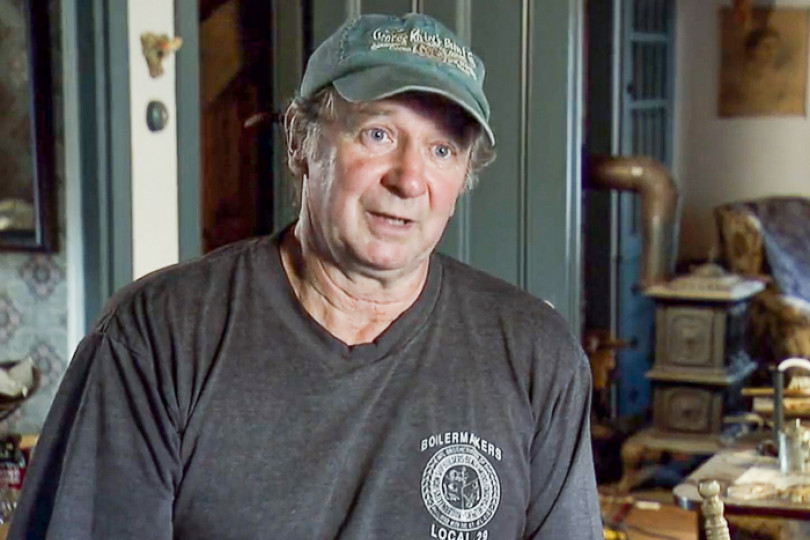Show’s hosts barter for antiques
WILSON MULL, A retired member of Local 29 (Boston), bartered on the air with the hosts of the History Channel’s American Pickers during a December episode of the show. In addition to making money by selling off antiques, he gave the Boilermakers a positive mention at the beginning of the show, taped at his Rochester, Massachusetts, home.
“When they came to film, I had on a Boilermaker T-shirt,” said Mull. “They liked that because the people running the cameras were union.” They told him that something about the Boilermakers would definitely go into the final show.
American Pickers, hosted by Mike Wolfe and Frank Fritz, is a reality TV show that travels around the United States exploring antique and junk collections. The hosts then acquire items to sell online and in their two shops.
“I have an extensive antique stove collection I started in the 1970s,” said Mull, who confesses that his antiques take up a lot of space in his house and his three-story barn.
The show discovered Mull after reaching out to a local historical society. They contacted Mull in October. They then sent out an advance team to see his collection and get an idea of what he might sell.
“They wanted to make sure I was a person they could deal with,” said Mull. “They kind of like a bit of erratic behavior because that’s part of the show.”
Mull said the overall concept of American Pickers is bartering, which is why he agreed to appear on the show. “I viewed [the show] as a possibility to sell off some of my collection, basically,” said Mull, who has been collecting for nearly five decades. He bartered so much, the Pickers had to bring two, small rented trucks to haul off all the items they purchased.
“It turned out to be a lot of fun.” His favorite part of the show was selling several signs he bought in the 1970s, which cost around $1.50 at time and sold for $700 to $800.
“They were surprisingly nice folks,” said Mull.






